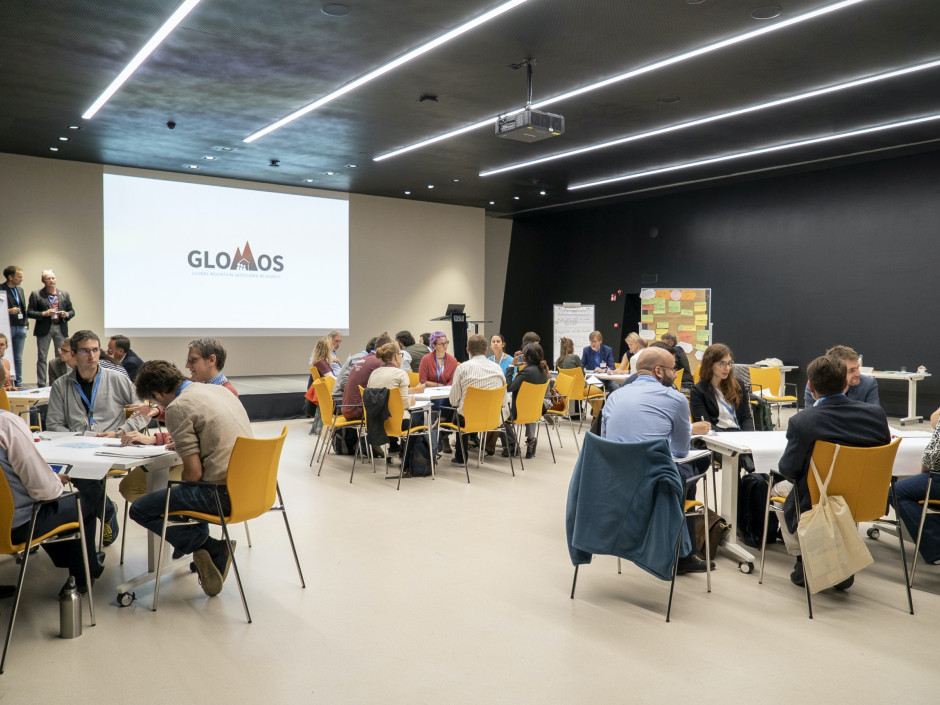Increasing human security and sustainable development in mountainous regions worldwide
Eurac Research and United Nations University are strengthening their cooperation with the aim of improving the living conditions of people in mountainous regions.
Climate change adaption, disaster risk reduction and emergency response in mountainous regions: these are just some areas in which researchers from Eurac Research and the United Nations University Institute for Environment and Human Society (UNU-EHS) in Bonn will cooperate even more intensively in the future. A three day international conference (17 – 19 October) at Eurac Research and NOI Techpark will see the launch of this cooperation. 150 researchers, government and UN representatives from all over the world will be participating. In parallel, this new strategic partnership will make Bolzano / Bozen an official duty station of the United Nations system.
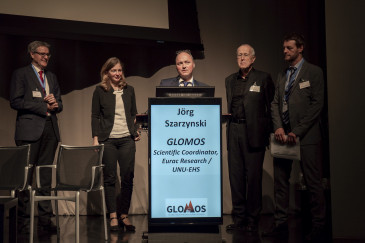
Worldwide mountain regions cover approximately 24 percent of the Earth’s surface, and about 13 percent of the world’s population in 120 countries inhabits them. In other words, more than 900 million people live in mountainous regions, where they are particularly susceptible to multiple natural hazards and an increasing number of very specific disaster risks. Mountains are of strategic importance for agriculture, food security and biodiversity at the global scale. Mountains are also considered the most sensitive regions with regard to global warming and the intensifying climate variability which is observed worldwide. It is very likely that climate change has particularly fast and direct consequences on the frequency and intensity of natural hazards occurring in these regions. “This is one important reason why already back in the 1970s United Nations University initiated international projects and collaborative research programmes in global mountain areas,” explains Jörg Szarzynski, scientific coordinator of the new collaboration programme GLOMOS (Global Mountain Safeguard Research). “In 1992, results and expertise gained from this research culminated in the inclusion of a new mountain chapter within ‘Agenda 21’. The official document was signed by 178 states at the Earth Summit, the UN Conference on Environment and Development, in Rio de Janeiro. For the first time ‘Agenda 21’ also contained guidelines for the establishment of sustainable development in an international framework.”
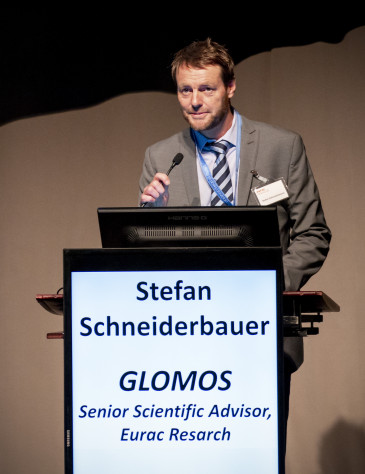
For more than 25 years, a major scientific focus of Eurac Research have been mountain-related themes such as environment, economy, migration, transport, tourism and climate change. Stefan Schneiderbauer, geographer at Eurac Research, cites one example: “At the research centre in Bolzano / Bozen we gather high-resolution data about the environment from satellites covering the entire Alpine region. By feeding models with this data we can provide precise predictions for water management, for instance the production of electricity from hydropower, but also for the management of natural hazards, such as landslides and rock falls.”
UNU-EHS and Eurac Research have been cooperating in the field of vulnerability and risk research in mountain regions since 2008. How susceptible are mountainous areas to global change? What is the role of human influence and which problems have natural causes? These are some of the questions to which the researchers are seeking answers. The present conference marks the beginning of an even more intensive cooperation in the areas of Alpine environment and emergency medicine, migration, minority rights and regional development as well as renewable energy, Alpine- and green technology. 150 participants from all over the world, among them representatives of the UN, scientists from different disciplines, practitioners and policymakers, will be exchanging ideas in working groups over the next three days. The central focus will be on the enormous challenges facing mountainous regions in the coming decades against the background of global population growth along with increasing scarcity of natural resources, and climate change.
“Results from this conference will also provide the common ground for joint scientific projects and activities in the near future,” explains Dirk Messner, director of the UNU Institute for Environment and Human Security in Bonn. “A first project proposal has already been submitted. The water management in the Mediterranean and North African region will be analysed and improved over the next few years with the financial support from South European partners and the Federal Republic of Germany. Results from this collaborative project will also help to counteract economic migration from these regions.”
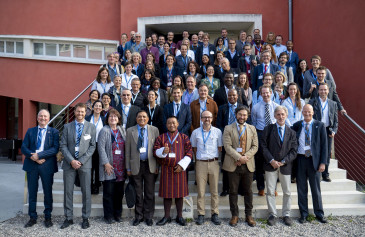
“Close cooperation with United Nations University is a great opportunity to demonstrate the high scientific and technological expertise and competency of South Tyrolian institutions in the area of global mountain related research,” says provincial governor Arno Kompatscher. “Eurac is a very well established research partner for UNU-EHS, with many years of experience in mountain related research, now breaking new and innovative ground with its unique terraXcube Extreme Climate Simulator.”
This intensified cooperation is also an excellent opportunity for the local private sector to explore and open new markets. To this end, Innovation Development Marketing (IDM), operating at NOI Techpark, is organising a trade fair for local companies that are designing products for the sustainable management of mountainous terrain and looking for an opportunity to present them during the international GLOMOS Conference.
Related Articles
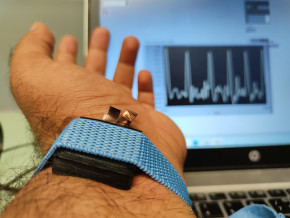
Tecno-prodotti. Creati nuovi sensori triboelettrici nel laboratorio di sensoristica al NOI Techpark
I wearable sono dispositivi ormai imprescindibili nel settore sanitario e sportivo: un mercato in crescita a livello globale che ha bisogno di fonti di energia alternative e sensori affidabili, economici e sostenibili. Il laboratorio Sensing Technologies Lab della Libera Università di Bolzano (unibz) al Parco Tecnologico NOI Techpark ha realizzato un prototipo di dispositivo indossabile autoalimentato che soddisfa tutti questi requisiti. Un progetto nato grazie alla collaborazione con il Center for Sensing Solutions di Eurac Research e l’Advanced Technology Institute dell’Università del Surrey.
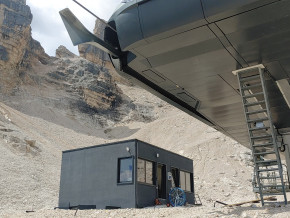
unibz forscht an technologischen Lösungen zur Erhaltung des Permafrostes in den Dolomiten
Wie kann brüchig gewordener Boden in den Dolomiten gekühlt und damit gesichert werden? Am Samstag, den 9. September fand in Cortina d'Ampezzo an der Bergstation der Sesselbahn Pian Ra Valles Bus Tofana die Präsentation des Projekts „Rescue Permafrost " statt. Ein Projekt, das in Zusammenarbeit mit Fachleuten für nachhaltiges Design, darunter einem Forschungsteam für Umweltphysik der unibz, entwickelt wurde. Das gemeinsame Ziel: das gefährliche Auftauen des Permafrosts zu verhindern, ein Phänomen, das aufgrund des globalen Klimawandels immer öfter auftritt. Die Freie Universität Bozen hat nun im Rahmen des Forschungsprojekts eine erste dynamische Analyse der Auswirkungen einer technologischen Lösung zur Kühlung der Bodentemperatur durchgeführt.
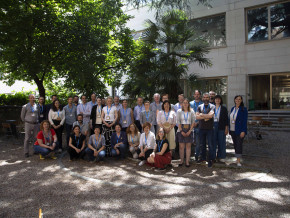
Gesunde Böden dank Partizipation der Bevölkerung: unibz koordiniert Citizen-Science-Projekt ECHO
Die Citizen-Science-Initiative „ECHO - Engaging Citizens in soil science: the road to Healthier Soils" zielt darauf ab, das Wissen und das Bewusstsein der EU-Bürger:innen für die Bodengesundheit über deren aktive Einbeziehung in das Projekt zu verbessern. Mit 16 Teilnehmern aus ganz Europa - 10 führenden Universitäten und Forschungszentren, 4 KMU und 2 Stiftungen - wird ECHO 16.500 Standorte in verschiedenen klimatischen und biogeografischen Regionen bewerten, um seine ehrgeizigen Ziele zu erreichen.
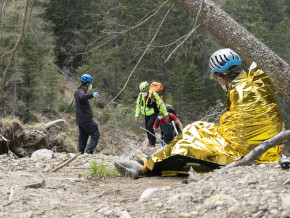
Erstversorgung: Drohnen machen den Unterschied
Die Ergebnisse einer Studie von Eurac Research und der Bergrettung Südtirol liegen vor.
